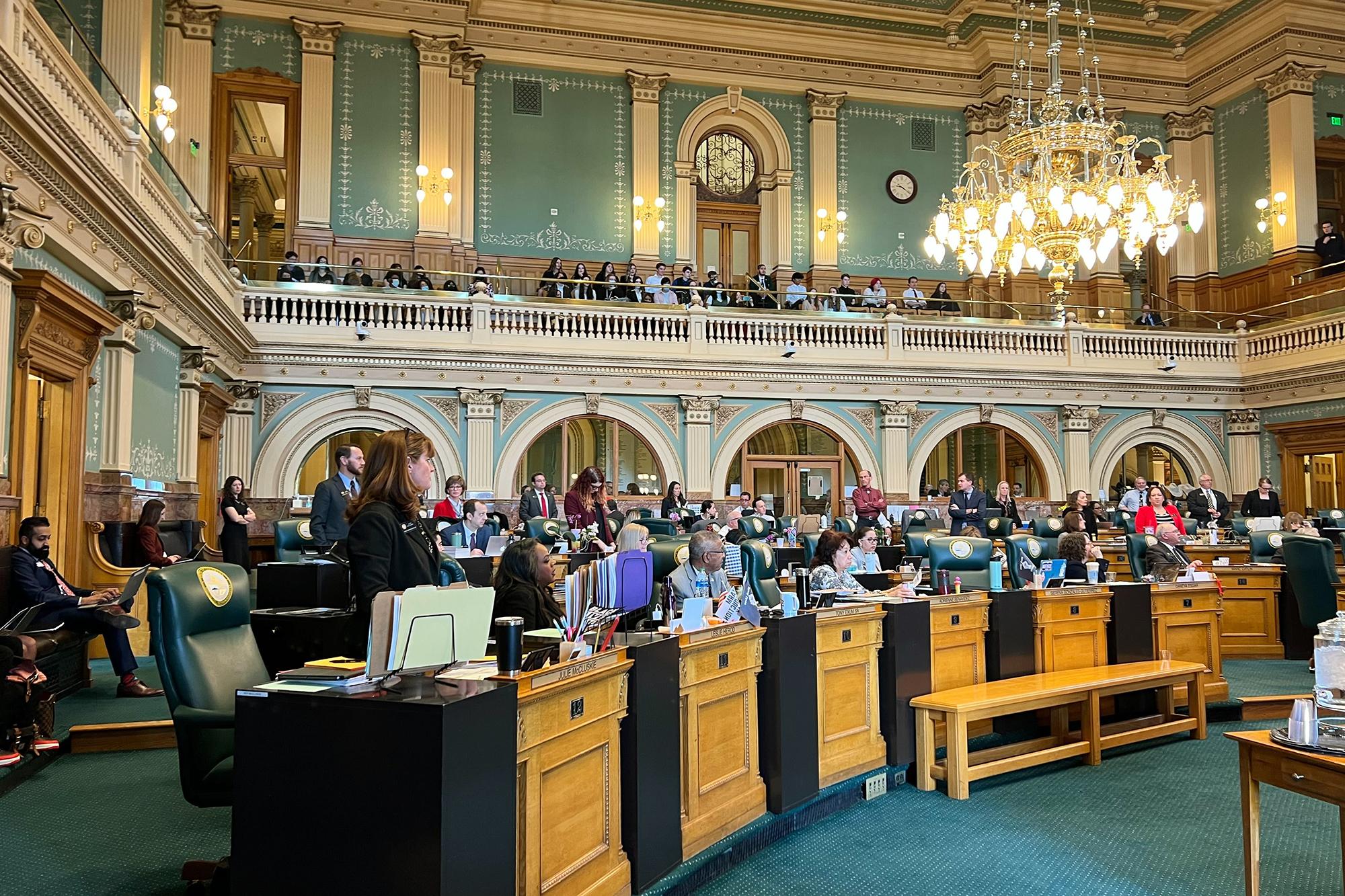
Bipartisan opposition defeated a bipartisan health care bill Tuesday when state House lawmakers rejected a proposal to give physician assistants more professional freedom in Colorado.
Proponents said that the bill would help to ease the rural health care shortage by lifting some of the regulations on medical practice by PAs. But it faced stiff opposition from doctors’ organizations and politicians in both parties — including some from rural areas — who argued the changes could lead to substandard care.
State Rep. Susan Lontine, a Democratic sponsor of the bill, said that lobbyists for physicians had effectively killed the proposal because they did not want to see other professionals gaining ground.
“I lay this squarely on the shoulders of the Colorado Medical Society for defeating this bill. I personally feel they did so because they are threatened by any provider who they believe encroaches on their ability to make a livelihood. Getting this passed will require them at least coming to the table and recognizing that physician assistants are struggling to find jobs in Colorado because of the current bureaucracy where they are tied to a specific doctor,” she said in an interview.
In a statement, the Medical Society said that defeating the bill was "a clear win for patient safety and the preservation of the team-based approach to care." The group's president, Dr. Mark Johnson, said he was open to other ways of reforming the PA system.
This is the second year in a row lawmakers have rejected a bill on this topic.
Opponents said that doctors have years more formal training and should play an important role in overseeing the work of physician assistants. Eroding that relationship would result in more errors and risk, they argued.
PAs already do much of the same clinical work as physicians. They may be the only clinician that a patient ever sees in rural and safety-net clinics, where more than a half-dozen PAs and practitioners may work under one doctor.
The bill would have moved PAs closer to independence. They would have “collaborated” with physicians, instead of being “supervised” by them. Their scope of practice would be based on their own experience and the choices of their practice leaders, rather than the scope of their supervising physician. And they would have been allowed to continue practicing if their supervising physician left the clinic.
“I don’t feel at all comfortable making that decision when I’m hearing from the profession two sides of that (idea),” said state Rep. Adrienne Benavidez, a Democrat, before voting no. She was also concerned the bill didn’t include any direct incentive to draw PAs to rural areas, and said that it could create a “double standard” by implying that PAs are sufficient for care in rural areas.
“And doctors, I think, is where they really have a need in the rural area,” she said.
Supporters of the bill argued that PAs had no interest in supplanting doctors or working fully independently, saying that they instead would continue to consult with physicians and other experts.
“This is about collaboration. This is about getting more people to have access to care, from people who are passionate about their work, who are knowledgeable about their work, and who may in some cases know more even than a doctor,” said state Rep. Brianna Titone, a Democrat who supported the bill.
The bill went through twists and turns in its final days, including an effort to ease opposition with a last-minute amendment to define ‘scope of practice’. But it died on a preliminary vote. In an old-fashioned twist, lawmakers at this step don’t use their voting machines but instead stand at their desks to signal their choice. Throughout the chamber, the vote made the bill’s bipartisan politics clear; lawmakers were visibly divided from their usual political allies — with a range of Democrats and Republicans standing as their party colleagues sat.
In a final tally, the bill failed 28-35, with two excused absences. Democratic House Speaker Alec Garnett voted in its favor, while House Majority Leader Daneya Esgar voted against it. Esgar’s Republican counterpart, Minority Leader Hugh McKean, also voted against the bill.
The final vote also showed how fluid the bill's fortunes have been. State Rep. David Ortiz, a Democrat, and Rep. Mark Baisley, a Republican, both supported the bill in committee, but opposed it in the final recorded vote.
Reached afterward, Ortiz said that he helped get the bill out of committee because he wanted it to be debated on the floor. But in the course of that debate, he came to feel his own concerns “were shared and justified,” he wrote in a text message.
Baisley said that he supported the idea of “liberty for physician assistants” but that he ultimately voted no because he believes the title “physician assistant” implies there is a close relationship between the PA and a physician. He said that the nurse practitioner role already offers a more independent option.
Editor's note: This article was updated on March 15, 2022 with comment from the Colorado Medical Society.
More coverage of the 2022 Colorado legislative session:
- A state lawmaker dropped his firearm inside the Capitol while hurrying to a vote
- Abortion ‘protection’ bill moves forward in House following Republican effort to stall
- The politics of crime: Democrats and Republicans both focus on public safety as election looms
- Colorado lawmakers introduce bill declaring Juneteenth a state holiday









